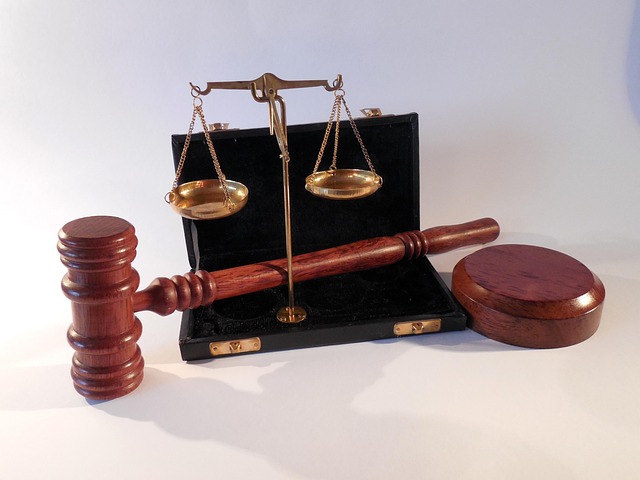Understanding local DUI laws and penalties is key to crafting effective criminal defense strategies. Skilled attorneys leverage region-specific rules, challenge evidence and testimonies, and navigate complexities to protect clients' rights and minimize severe penalties. Robust communication, strategic legal representation, and deep dives into state-specific laws are vital for successful outcomes in high-stakes DUI cases.
In the realm of effective criminal defense strategies for DUI charges, litigation risk management is a vital process. Understanding DUI laws and penalties forms the crucible where a strong defense team is built. By challenging evidence and testimonies, legal professionals can navigate labyrinthine loopholes and defenses. This strategic approach, coupled with efficient communication, ensures favorable case outcomes. Implement these effective strategies to transform potential pitfalls into plausible victories in today’s digital era.
- Understanding DUI Laws and Penalties
- Building a Strong Defense Team
- Challenging Evidence and Testimonies
- Exploring Legal Loopholes and Defenses
- Effective Communication for Case Outcomes
Understanding DUI Laws and Penalties

Understanding DUI Laws and Penalties is a critical step in developing Effective Criminal Defense Strategies for DUI Charges. Each jurisdiction has its own set of rules and regulations regarding driving under the influence (DUI), but common elements often include blood alcohol content (BAC) limits, field sobriety tests, and legal procedures during arrest and prosecution. Knowing these laws inside out can help individuals make informed decisions and potentially avoid indictment.
An unprecedented track record of successful DUI defenses underscores the importance of skilled legal representation. By leveraging knowledge of local legislation and employing strategic tactics, experienced attorneys can challenge evidence, question witness testimonies, and navigate the complexities of the respective business. This ensures that clients’ rights are protected throughout the process, minimizing the risk of severe penalties associated with DUI charges.
Building a Strong Defense Team

Building a robust defense team is paramount when facing DUI charges, especially given the potential impact on your future. An effective criminal defense strategy for DUI cases involves assembling a team of legal experts who possess an unprecedented track record of success. This typically includes experienced attorneys specializing in DUI law, who can navigate the complex procedures and leverage their in-depth knowledge of state laws and regulations.
A comprehensive defense strategy may also incorporate expert witnesses, such as forensic specialists or medical professionals, to challenge the prosecution’s evidence. By combining legal prowess with scientific expertise, these strategies aim to present a compelling case, potentially leading to reduced charges or even acquittal. Past performances in jury trials further underscore the team’s capability to advocate for the best possible outcome.
Challenging Evidence and Testimonies

Challenging evidence and testimonies are crucial components in any legal battle, especially when it comes to crafting an effective criminal defense strategy for DUI charges. A skilled advocate must be adept at scrutinizing and discrediting the prosecution’s case, aiming to present a compelling alternative narrative that benefits his clients. This involves meticulous investigation and analysis of all available evidence, including physical, forensic, and eyewitness accounts, to identify any inconsistencies or potential biases.
In the realm of white-collar defense, winning challenging defense verdicts relies heavily on this ability to counter the prosecution’s arguments. By presenting a robust, well-reasoned challenge to the evidence and testimonies, defense attorneys can navigate their clients through complex legal landscapes, ensuring fairness and the potential for favorable outcomes. This strategy is particularly vital when defending against serious charges, where the stakes are high and a strong defense can make all the difference.
Exploring Legal Loopholes and Defenses

In the intricate dance of litigation risk management, one of the key elements involves exploring legal loopholes and crafting effective criminal defense strategies. When faced with high-stakes cases like DUI charges, understanding these nuances can make all the difference between a favorable outcome and a detrimental one. By scrutinizing every aspect of the case, from the initial stop to the evidence collection and presentation, defense attorneys can uncover potential weaknesses in the prosecution’s argument. This strategic approach not only strengthens the defendant’s position but also achieves extraordinary results, ensuring justice is served throughout all stages of the investigative and enforcement process.
Effective criminal defense strategies for DUI charges often require a deep dive into state-specific laws and judicial precedents. This meticulous research helps identify legal defenses that can challenge the prosecution’s case, such as questioning the admissibility of evidence or disputing the procedures used during the arrest and testing phases. Leveraging these tactics, attorneys can construct robust defenses, countering the charges with solid arguments based on technicalities or procedural errors. Such strategic maneuvers not only protect the rights of the accused but also showcase a thorough understanding of legal intricacies in high-stakes cases.
Effective Communication for Case Outcomes
Effective communication plays a pivotal role in shaping the outcomes of legal cases, particularly in scenarios involving complex charges like DUI. Skilled attorneys understand that a well-communicated strategy is a powerful tool to navigate the intricate details of each case. By employing effective criminal defense strategies for DUI charges, lawyers can ensure their clients’ rights are protected throughout all stages of the investigative and enforcement process. This includes articulating a clear narrative, presenting compelling evidence, and fostering an open dialogue with both corporate and individual clients alike.
A successful communication strategy allows legal professionals to build strong defenses, challenge incriminating evidence, and ultimately work towards winning challenging defense verdicts. It requires a deep understanding of the law, coupled with excellent interpersonal skills, to persuade judges and juries. When executed properly, effective communication can be the game-changer that tips the scales in favor of the defendant, demonstrating the value of strategic legal representation.
In navigating the complex landscape of effective criminal defense strategies for DUI charges, understanding the nuances of DUI laws, building a robust defense team, challenging evidence and testimonies, and exploring legal loopholes are paramount. By employing these strategic elements, individuals can ensure their rights are protected and strive for favorable case outcomes. Effective communication throughout the process further strengthens their position, underscoring the importance of a well-informed and proactive approach to litigation risk management.






